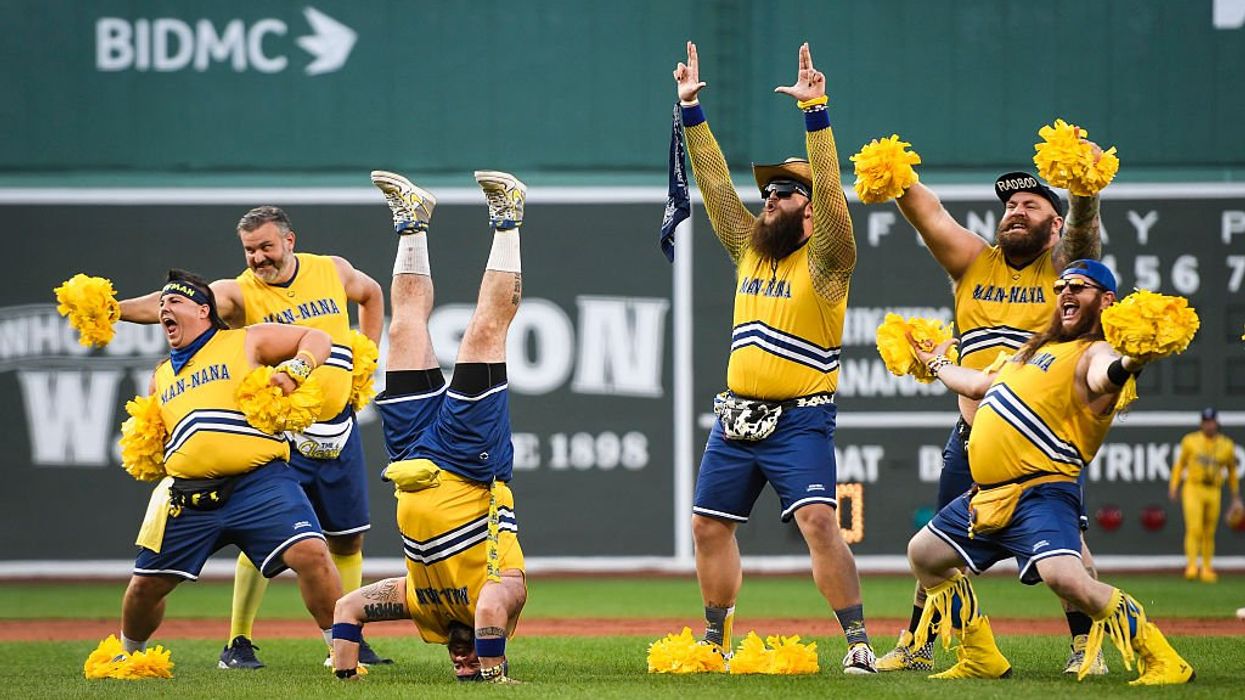If an apple a day keeps the doctor away, maybe bananas can cure our societal ill of loneliness.
In a time when the U.S. surgeon general has declared loneliness a public health epidemic, comparable to smoking 15 cigarettes a day, Americans are desperately searching for authentic connection, and the Savannah Bananas offer a welcome respite.
The Savannah Bananas—a barnstorming baseball team that plays by their own high-energy rules, called “Banana Ball”—might seem like mere entertainment at first glance. But dig deeper, and you'll find something profound: a blueprint for combating isolation through shared joy, communal experience, and the radical act of prioritizing fun and acting silly over competition.
Owner Jesse Cole founded the team with the mantra "Fans First. Entertain Always,” with the Bananas on a mission to “make baseball fun by creating the greatest show in sports.” When millions of fans join in that fun, loneliness can be held at bay.
The statistics surrounding America's loneliness epidemic are staggering. According to recent research, social isolation affects millions of Americans across all demographics, contributing to depression, anxiety, and even premature death. An American Psychiatric Association poll from early 2024 shows that one in three Americans feels lonely every week.
The problem has been exacerbated by our increased use of digital communication, which has commonly replaced face-to-face interaction, led to the decline of traditional community institutions, and increasingly fragmented neighborhoods where neighbors remain strangers.
Traditional sports do offer social connection but often emphasize competition over community. Fans divide into tribal camps, viewing opposing teams as enemies, furthering our hyperpolarized society, rather than being fellow participants in a shared experience.
The result, using baseball as an example, is not a connection within teams but in the literal and figurative division between them, which is hardly the antidote to widespread loneliness that our society needs. Instead, enter Banana Ball, “Where Everyone Wins.”
The Savannah Bananas have revolutionized this dynamic by creating an experience where the primary goal isn't winning or losing but collective joy. Their games feature dance-offs between innings, players performing comedic skits, walking on stilts, silly costumes, and constant fan interaction that breaks down the traditional barrier between performer and audience.
The emphasis on entertainment over competition means that the experience itself becomes a victory. And unlike traditional baseball games, where some portion of the crowd leaves disappointed, Banana Ball games send everyone home happy, regardless of the score.
Being present at a Banana Ball game is the epitome of collective effervescence, the feeling of energy and harmony when people are engaged in a shared purpose. It is in the collective that makes the Bananas particularly effective at combating loneliness with its understanding of ritual and community-building.
Perhaps most importantly, the Bananas demonstrate how individual experiences of connection can ripple outward into broader community healing. Attendees don't just connect with the team or other fans during the game; they carry that energy back into their daily lives, approaching their communities with renewed enthusiasm for connection.
The team has sold out every game since their 2016 inaugural season in Savannah, Georgia, and has since grown a ticket waitlist of more than two million fans from all over the world.
I had the pleasure of being one of the 88,000 fans who had a blast in Busch Stadium in St. Louis over the two-day period. There was a palpable, joy-filled energy that permeated out to the rest of the city.
In St. Louis alone, Bananas fans traveled from 44 states and Canada, supporting the local economy through tourism.
And while social media can hold some responsibility for the increase in our feelings of isolation, the Savannah Bananas have used it to grow their movement. They are considered TikTok's “Favorite Team,” and have more followers on that platform than any MLB club, bringing eyes to over 300 million views and more than 15 million social media followers.
The Savannah Bananas offer more than entertainment—they provide a masterclass in combating loneliness through intentional community building. Their success suggests that addressing America's isolation epidemic should prioritize joy, inclusion, and shared humanity over competition and division.
In a world that often feels fractured and polarized, maybe we all need a little more Banana Ball—where, in a ballpark or stadium, strangers become friends through the simple act of dancing, clapping, and laughing together between innings.
Lynn Schmidt is a columnist and Editorial Board member with the St. Louis Post-Dispatch. She holds a master's of science in political science as well as a bachelor's of science in nursing.




















Trump & Hegseth gave Mark Kelly a huge 2028 gift